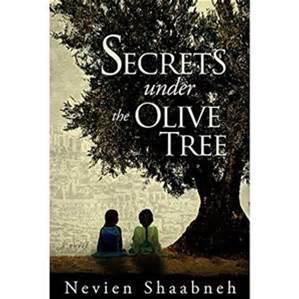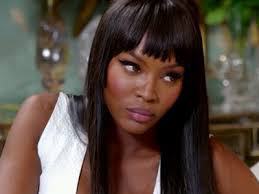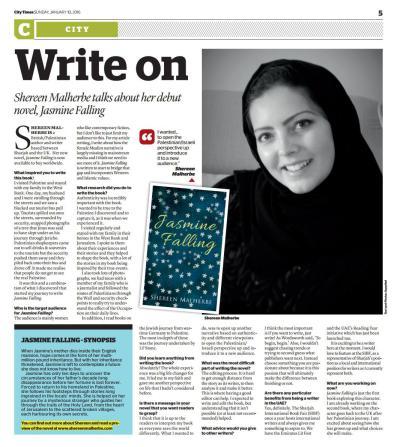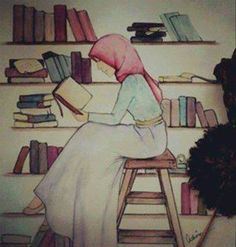Shereen Malherbe's Blog, page 26
March 1, 2016
A Feature for The Middle East Eye: Alia Khan: Pioneering the Islamic fashion revolution

Alia Khan, pioneer and founder of Dubai’s Islamic Fashion Design Council (photograph courtesy of Alia Khan)
The founder of Dubai’s Islamic fashion council talks about the emerging market and how it’s helping shape the mainstream clothing industry.
Read the article at the Middle East Eye.


Features in The Middle East Eye: Alia Khan: Pioneering the Islamic fashion revolution

Alia Khan, pioneer and founder of Dubai’s Islamic Fashion Design Council (photograph courtesy of Alia Khan)
The founder of Dubai’s Islamic fashion council talks about the emerging market and how it’s helping shape the mainstream clothing industry.
Read the article at the Middle East Eye.


February 27, 2016
A Profile of Yasmin Choudhury, Founder of Lovedesh

This week I interviewed Yasmin Choudhury, winner of the Entrepreneur of the Year at the British Muslim Awards for her social entrepreneurship business, Lovedesh. Waking up early to talk to me on a Saturday morning, Yasmin was full of energy, despite the time. She jumped straight in with the background on how Lovedesh started. During a visit back to her father’s homeland in Bangladesh, Yasmin felt that she wasn’t experiencing the true Bangladesh; she wanted to know more about the journeys and lives of the locals there. She took action and decided to get out into the community to talk to them. Understanding how it felt to be ostracized from a community, she began to build friendships with the women around her. Yasmin says, ‘What do women do when they get together? They talk and cook!’ Being involved in the grassroots of the society gave Yasmin a new perspective and introduced her to the arts of her heritage that she hadn’t experienced before.
On returning home, she began thinking of a way to empower those women and ‘put pennies in their pockets’. Yasmin believes economic empowerment can help to change the lives of these women which is why Lovedesh is an entrepreneurship and not a charity. The Bangladesh she had experienced was not always represented in the West. This led to her developing Lovedesh and its sister charity, Amcariza. Yasmin’s aim for Lovedesh is to help the West see the Third World in a different way, to ‘To smash the stigma that surrounds these nations.’
One example Yasmin now incorporates into Lovedesh is a ‘Lovedesh Dawat.’ (Dawat in Bengali means an invitation to eat food prepared in your honour.) This is a dining club with the mantra that ‘if a great dining experience of a ‘Third World’ nation starts from within your home turf in the UK, you are more likely to be open minded in visiting it.’ The hope is to introduce people to a side of Bangladeshi culture that isn’t often promoted. Another taste experience is Lovedesh’s Wood Fire Curry, cooked ‘using spices smashed on a granite slab and then roasted in hot oil over a live wood fire’, replicating how the food is made in Bangladesh.
If tasting isn’t for you, Lovedesh also provides a fashion and design rangeYasmin has worked with ‘remote Bangladesh weavers and artisans’ to create product ranges which include bracelets, bags & purses. This has the added benefit of allowing neglected techniques and handicrafts to form part of a business venture for the locals in unique designs aimed at the Western audience.
If you would rather jump straight in and experience Yasmin’s cultural hotspots first hand, Lovedesh Voyage provides boutique trips including a ‘unique 13 day escorted tour on the trail of the Royal Bengal Tiger’.
To say Yasmin is hands on is an understatement; from live curry trials around the UK where she shows you how to cook, to hand-cutting leather bracelets, Yasmin is out and about, displaying her passion and representing the ‘Third World’ in a new light through Lovedesh.
To read the full article visit Muslimah Media Watch


January 31, 2016
Where are all of our voices? The lack of Muslim Narratives in Western Literature
 Discussed on British Muslim TV and available to view on air from February 11th, 5pm-6pm. Here is a summary of my thoughts on why we need diverse, authentic narratives to break into mainstream.
Discussed on British Muslim TV and available to view on air from February 11th, 5pm-6pm. Here is a summary of my thoughts on why we need diverse, authentic narratives to break into mainstream.The contributions Muslim women make to society are being missed with the current lack of diversity in literature, so where are all of our voices? After all, we are out there contributing to society, but pick a chick-lit book or a popular series and they don’t include relatable themes for Muslim women.
The female Muslim narrative needs to be become more representative so a viable alternative to glamourized western ideals dominating the market can be heard above the crowd. For conscious readers who want to enjoy fiction stories, there is a unique genre called Islamic fiction. Too few UK and American publishers currently contribute to Islamic fiction and it may be because of the confusion of what Islamic fiction is, how cool it is and how preachy it may be. I want a new term. It has to be one that speaks to us and is written by us. The story should be so good it shouldn’t even matter what genre it is coined, but finding you is important. It needs to reach sisters and say, ‘Hello, I hear you. I know you are out there and contributing to society and our struggles can be different but equally as funny, emotional and important.’ It isn’t about perfection, it’s about life based on our individual and collective beliefs, what that means for us and the application of it in the modern world, which is missing from narratives available in women’s literature. Non-Muslim readers also want an authentic experience with voices emanating from within our multi-cultural community.
The availability of well written, diverse books needs to grow and it needs our support. The Islamic fashion industry is tipped to be one of the largest growing industries and caters for one of the fastest growing segments of our population, which is young Muslim women. As the fashion industry has begun to notice this hot, new demand, so our literature needs to start truly representing society as it is.
There are some great bloggers and a rise of Muslim sister book clubs all aiming to represent our views in society, but I know there are more of us out there, dreaming, reading, writing and wondering where we can find narratives that speak to us. I would love to hear your thoughts on this so get involved and join me. Let’s find a way for our voices to be represented in mainstream fiction and beyond. I want to hear your thoughts on how we do this and any ways you are doing it already. If you have written any books or know any by Muslimah authors, please share! Join in the conversation here and on Twitter @malherbegirl and via Goodreads Muslim Women’s Book Club.


January 30, 2016
#Traditionally Submissive: Cameron’s Initiative, Language Barriers and Discrimination

I am assuming David Cameron’s ‘plans to “help” more Muslim women to speak fluent English’ were supposed to come across as a positive move? How can this education programme be seen as anything but positive when learning the country’s language is such an important tool for empowerment and social inclusion? Several commentators have made this case. Haroon Moghul for example supports the initiative as it would help Muslim women ‘become that much more politically successful and economically mobile. It’s discrimination, sure, but a positive kind.’ Similarly, Anna Rhodes argues that ‘Deportation after a period of time if you do not learn the language is a harsh, but effective, way to ensure that people are gaining the skills that they require to live and contribute to British society.’ So, why the backlash?
Well to begin with, an initiative aimed at one section of the community alongside a threat of deportation doesn’t help. After all, Cameron did not say “migrants,” he specifically singled out “Muslim women.” This all comes across as quite racist and marginalizing and it is debatable whether or not English language skills (or the lack of them) provides any causal effect on combatting extremism. Sayeeda Warsi, a Tory peer and former party co-chairman, noted that ‘“evidence suggests gang culture, Islamophobia, [and] responses to foreign policy are greater drivers of radicalisation” than failure to learn English.’
I believe that those arguing that it is a good thing have missed the point about how this has been presented. Charities such as JANTrust have been working with women to improve their language skills and specialize in integration into society. Were they consulted? Were any Muslim women who work within this area consulted on the effectiveness of this type of initiative on preventing extremism? The issue with the headline and statements isn’t about whether learning language is a good thing, it is about targeting a specific group with a threat of deportation in a show of combatting extremism, with no evidence presented that language skills have any link to extremism in the first place. The stereotypical representation that is repeatedly presented by the media and politicians reinforces exactly the reason why the virtual exhibition Muslima, which seeks to showcase Muslim women’s art and amplify their voices, involved a study to analyse the depiction of Muslim women in the media in ‘a world that’s grown accustomed to denying the rich diversity of Muslim women’s thoughts and contributions…and reducing them into an easy stereotype of an oppressed group’
To read the full article visit Muslimah Media Watch


January 23, 2016
Book Review: Nevien Shaabneh’s ‘Secrets Under the Olive Tree’

‘This week, I am excited to write about Secrets Under the Olive Tree, a book about a Palestinian-American girl written by a female Palestinian-American author. As a passionate champion of diverse narratives, I think it is incredibly important to have narratives by writers who belong to the communities they are depicting. I believe this adds to the authenticity of the work and helps to eliminate stereotypes that so often occur when others take on the role. Especially where stereotypes about Muslimahs are concerned.
For Secrets Under the Olive Tree, the main character Layla is introduced early to adult themes and situations she doesn’t know how to cope with. Treated as an unwanted addition in her family, and threatened by her father for something she has no knowledge of, Shaabneh makes the reader concerned for Layla’s welfare from very early on. Her mother tries her best to protect and include her, struggling under the threat of domestic violence and an alcoholic husband. She lacks any power to ease Layla’s situation at home. For the most part, she is submissive to her husband and his requests. This representation, although adding to the homogenous view of the oppressed Muslim woman, is also an acknowledgement that real life problems exist. Married off early to someone she does not choose, Layla later discovers secrets about her husband that make it impossible her to remain with him. Layla must discover the secret her family have kept from her that ultimately provides the answer to both her past and her future. Layla’s vulnerability is apparent in a scene where she sits in the street in the rain, unable to go home to a family who will only disown her. Her rescuer comes in the form of female Muslim charity worker, Wafa who helps people who have run away from home or need assistance by providing supportive charity services for those in her community. It is refreshing to have such a positive contributor to society who is portrayed as caring, sensitive and non-judgmental.
The diversity in representing female Muslims in America doesn’t stop there. Wafa and Layla visit a poetry night one evening, organized by a younger ‘inner city Muslim activist group’. There, we are introduced to more Muslims who do not conform to the typical stereotype including the depiction of the character, ‘Aya’. She has a strong voice on stage and overwhelms Layla with her words. Aya dresses uniquely and has ‘a bohemian flare about her that [Layla] had not seen before in a Muslim woman.’. These varied depictions help to portray Muslim women as a diverse group, united by their faith but not by their dress, attitude or any other factors that tend to form the stereotypes we are often used to reading and seeing in the mainstream. One commentator on Goodreads agreed that the book; “helps debunk and shed light on the common misconceptions about Islam, Middle Eastern men and women, and the stereotypes that surround them.“‘
For every negative role model or representation in the book, there is a positive counterpart. For example, when it comes to marriage, we have different representations of marriage in the Muslim community. As a counterpart to Layla’s own parent’s unhappy marriage we have the happily married couple of Layla’s friend, Hanadi, who represent the positive; ‘Mr. Ayad tenderly took his wife’s hand and kissed it…she asked for a drink of water and he immediately stood up and walked to the kitchen.’ By offering counterparts to each negative scenario, the book infuses the reader with hope and erases any typical stereotypes one might be expecting.
Read the full review via Muslimah Media Watch


January 16, 2016
Iqbal Al Assaad-Doctor or Refugee?

‘I am incredibly proud of Iqbal Al Assaad. The news of her being possibly one of the youngest doctors in the world has been in and out of the media over the last few years. Her story is not a new one and it remains inspiring and yet tainted at the same time. Assad excelled in her education, skipping grades, winning the support of scholarships for her education and was called a ‘child prodigy’. For her, ‘the sky is the limit.’
Assaad, a Palestinian refugee raised in Lebanon, had aspirations to become a doctor after witnessing the plight of her fellow Palestinians in refugee camps who had no access to medical treatment. Assaad says, ‘These visits to the camps made me feel that it is my responsibility to study medicine and try to help these people.’
However, it seems there is a limit. Assaad’s dream of helping Palestinian’s in Lebanon or her homeland is currently impossible. She cannot return to Palestine and in Lebanon, Palestinian refugees are not allowed to work as doctors.
With the number of refugees increasing, (figures for 2013 showed a total of 51.2 million refugees, asylum-seekers and internally displaced people), the issue of integration into societies becomes increasingly more relevant and important.’
‘Negatively labelling millions of people into one category is harmful and unhelpful. Displaced persons can and do contribute successfully to society, if those societies give them the opportunity and means to do so.’
Read the full article via Muslimah Media Watch


January 13, 2016
Burka’s and Books
Thank you for sharing your personal experiences. It is important to have this dialogue and be involved with other sisters who may have been feeling the same as you. I too, wonder how covering has or will impact negatively on our achievements but I commend you on your strength to write it and inshaAllah it contributes to others in a positive way.
Lately I’ve been contemplating the direction of this blog. I’ve never really wanted to impose my personal or political views upon you guys and have largely remained reticent about who I am. But recently two things happened which have made me rethink my position. 1) I had a conversation with a stranger which went something like this:
Them: “you’re reading a book!”
Me: “yes”.
Them: “wow, no offence, (staring at my scarf) but you don’t look like the type of person who reads books”
Me: silently searching their face for five long minutes wondering wtf a ‘reader’ is supposed to look like. 
2) I was spat at whilst walking down the street.
You see, I am a Muslim, a Muslim woman in fact and *shock horror* one who chooses to cover my head. I haven’t really revealed that fact as I genuinely believed it would put people off my blog…
View original post 200 more words


January 11, 2016
An interview with author, Shereen Malherbe

What inspired you to write this book?
‘I visited Palestine and stayed with my family in the West Bank. One day, my husband and I were strolling through the streets and we saw a blacked out tourist bus pull up. Tourists spilled out onto the streets, surrounded by security, snapped photographs of a tree that Jesus was said to have slept under on his journey through Jericho. Palestinian shopkeepers came out to sell drinks & souvenirs to the tourists but the security pushed them away and they piled back onto their bus and drove off. It made me realise that people do not get to see the real Palestine. It was this and a combination of what I discovered that started my journey to write Jasmine Falling.’
Who is the target audience for Jasmine Falling?
The audience is mainly women who like contemporary fiction, but I don’t like to just limit my audience to this. For my article writing, I write about how the female Muslim narrative is largely missing in mainstream media and I think we need to see more of it. Jasmine Falling is written to start to bridge that gap and incorporates Western and Islamic values.
What research did you do to write the book?
Authenticity was incredibly important with the book. I wanted to be true to the Palestine I discovered and to capture it, as it was when we experienced it. I visited regularly and stayed with my family in their homes in the West Bank and Jerusalem. I spoke to them about their experiences and their stories and they helped to shape the book, with a lot of the stories in my book being inspired by their true events. I also took lots of photographs, we had tours with a member of my family who is a journalist and followed the routes of Palestinians through the Wall and security checkpoints to really try to understand the effect of the Occupation on their daily lives. In addition, I read books on the Jewish journey from wartime Germany to Palestine. The most in-depth of these was the journey undertaken by I.F Stone.
Did you learn anything from writing the book?
Absolutely! The whole experience was a big life changer for me. It led me to my faith and gave me another perspective on life that I hadn’t considered before.
Is there a message in your novel that you want readers to grasp?
I think that it is up to the readers to interpret my book as everyone sees the world differently. What I wanted to
do, was to open up another narrative based on authenticity and different viewpoints to open the Palestinian/ Israeli perspective up and introduce it to a new audience.
What was the most difficult part of writing the novel?
The editing process. It is hard to get enough distance from the story as its writer, to then analyse it and make it better. This is where having a good editor can help. I expected to write and edit the book, but understanding that it isn’t possible (or at least not recommended) helped.
What advice would you give to other writers?
I think the most important is if you want to write, just write! As Wordsworth said, ‘To begin, begin.’ Also, I wouldn’t suggest chasing trends or trying to second guess what publishers want next. Instead choose something you are passionate about because it is this passion that will ultimately make the difference between finishing or not.
Are there any particular benefits from being a writer in the UAE?
Yes, definitely. The Sharjah International Book Fair (SIBF) once a year hosts international writers and always gives me something to aspire to. We have the Emirates Lit Fest
and the UAE’s Reading Year initiative which has just been launched too. It is exciting to be a writer here at the moment. I would love to feature at the SIBF, as a representative of Sharjah’s position as a local and international position for writers as I currently represent both.
What are you working on now?
Jasmine Falling is just the first book exploring this character. I am already working on the second book, where my character goes back to the UK after her Palestinian journey. I am excited about seeing how she has grown up and what choices she will make.
View my interview with the U.A.E’s Khaleej Times here.


Undercover ISIS: Why a lack of women scholars puts us at danger

‘A common reason for people seeking to be part of groups is to feel included in the community and to find similar people of their religious group and background. However, people I know in the Muslim community have become nervous about attending some Islamic centers teaching Islam, because they cannot verify what is being taught.’ Shereen Malherbe
Read the full article for Muslimah Media Watch here.



![[Image source].](https://i.gr-assets.com/images/S/compressed.photo.goodreads.com/hostedimages/1456582054i/18253688._SX540_.png)




